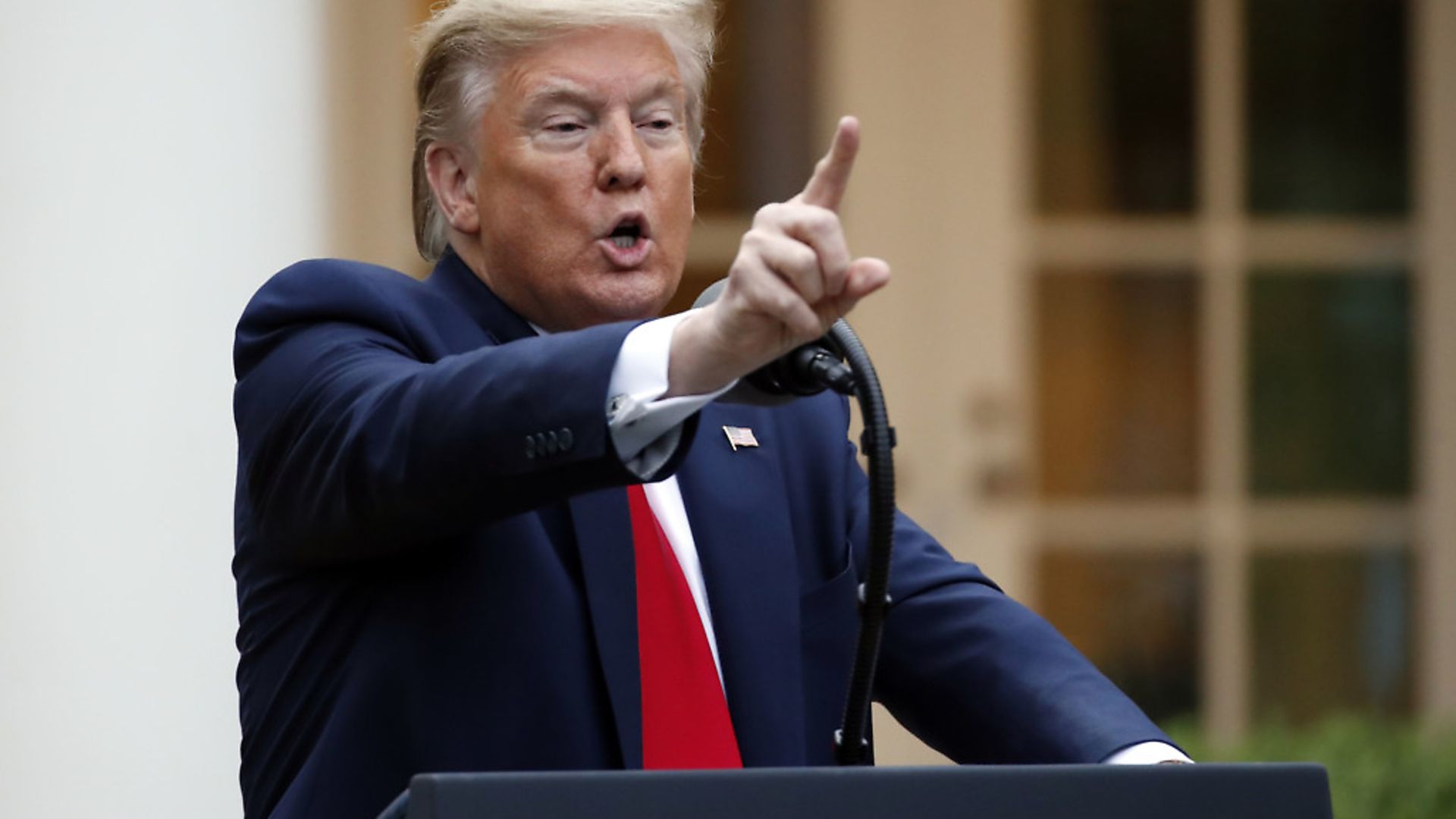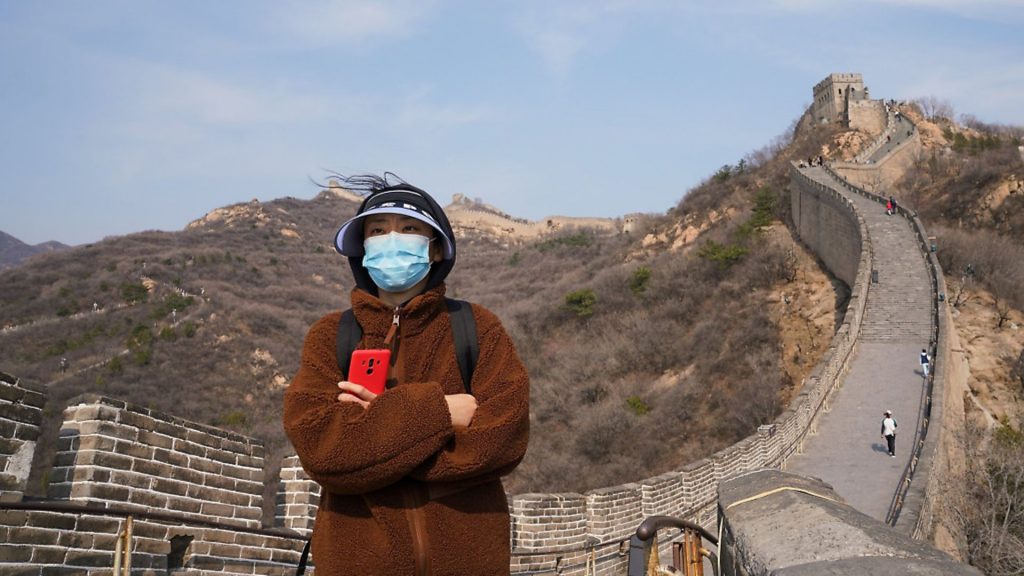
The Covid-19 pandemic has amplified orientalist, anti-Asian sentiment in the West. HOLLY BARROW calls for those in the UK and US to look closer to home before attributing blame on other countries.

In 1978, academic Edward Said developed the concept of ‘Orientalism’ to define the often patronising, colonialist representations of the East through a Western lens. Said’s theory became crucial to a post-colonial understanding of the West’s historically warped and prejudiced perceptions of the East as honing exotic, backwards and primitive cultures.
Consciously or not, orientalist thought commonly seeps into Western discourse on East Asia – from American cinema to European art to political hegemony, damaging tropes and culture bias prevails. It can take the form of exaggerated stereotypes or can operate through mechanisms of power; through inherently prejudiced notions of what is right or wrong, moral or immoral, progressive or barbaric.
Regrettably, in this unprecedented time of the COVID-19 pandemic, such orientalist, anti-Asian sentiments have only become amplified. When the video of one woman eating bat soup spread like wildfire across social media, it didn’t take long before unashamedly sinophobic responses littered our newsfeeds. Since many scientists believe that COVID-19 transferred from bat to human, this video became a convenient instrument to espouse a narrative of blame, using Chinese eating habits as an easy target for barely-concealed racism.
With the Coronavirus believed to have originated in Wuhan, China, in January, Chinese wet markets were immediately subject to an onslaught of criticism and scrutiny with Westerners highlighting how abhorrent it is to sell the likes of bats for human consumption. What this rhetoric neglects to recognise however, it quite how hypocritical it is.
Have your say
Send your letters for publication to The New European by emailing letters@theneweuropean.co.uk and pick up an edition each Thursday for more comment and analysis. Find your nearest stockist here or subscribe to a print or digital edition for just £13. You can also join our readers' Facebook group to keep the discussion and debate going with thousands of fellow pro-Europeans.
The Western obsession regarding which animals should and should not be eaten exposes a flawed logic – one steeped in false notions of superiority. Vast swathes of European and US populations are meat eaters, despite the growing popularity of plant-based or vegetarian diets. From snails in France to haggis in the UK, Westerners have consumed various types (and parts) of animals for centuries. Yet some of the responses to COVID-19 would leave anyone convinced that only East Asians participate in the consumption of animals – as though it were some unfathomable, despicable anomaly.
Since the Coronavirus began to spread across the globe, such sinophobia towards East Asians has become vicious. International students in both the UK and Australia have reported being physically assaulted; the internet has become a cesspool of racist abuse; local Chinese businesses have reported as much as a 50% drop in trade. This has stark implications on the lives of entire communities who are made to feel isolated from the rest of society.
Unfortunately, this is not the first time an infectious disease outbreak has become racialised in this way. In 2003, the SARS epidemic similarly saw a rise in racial abuse and hostility towards East Asian communities worldwide. One study released in the same year looked at how popular perceptions of SARS led to racial discrimination, noting a series of false rumours and heightened hysteria.
In one such example, the author of the study writes of how an ‘insidious April Fool’s hoax’ surfaced on a Massachusetts website which warned of infected employees at a restaurant in Boston’s Chinatown. This then led to the belief that there was widespread contagion in the district. This ‘stigmatic buzz surrounding Chinatown during the formative stages of popular perceptions of SARS’, the author wrote, ‘presages not only financial difficulties for business owners in urban Asian neighbourhoods but also a surge of racial discrimination in the community at large’. Seven years later, this once again rings true.
Amidst COVID-19, China has consistently been portrayed as ‘backwards’ throughout the West, to the detriment of those who are now targeted with racial abuse as a result. It is a result of both orientalist thought and geopolitics. Yet, global responses to the pandemic have revealed the significant inconsistencies in this colonialist logic – the idea that the West is far advanced – as it is, on the contrary, the West which is suffering exponentially to contain the virus.
Both the US and UK governments have exposed their citizens unnecessarily through a delay in action. While cases in the US are skyrocketing, one study suggests that the UK is set to have Europe’s worst Coronavirus death toll. On the contrary, the likes of Cuba, Vietnam and New Zealand are proving how invaluable prioritising people over the economy truly is. China, similarly, implemented strict measures to ensure a full lockdown took effect, while building a brand new hospital in 10 days exclusively for COVID-19 patients.
Those countries which have provided immediate, robust social safety nets and healthcare to all citizens – regardless of wealth – are faring better than some of the richest, most resourceful nations. Those which have historically prioritised profit are suffering significantly more.
If the West is to learn one thing from the Coronavirus, it ought to be that our ideas of what is ‘normal’ – both with regard to culture and economies – are inherently prejudiced. Before pointing the finger at non-Western nations, attributing blame and upholding cultural differences as abhorrent, we ought to take this time to reflect on our own downfalls.
• Holly Barrow is a political correspondent for the Immigration Advice Service; an organisation of immigration lawyers in the UK offering free legal advice to all NHS staff during the COVID-19 pandemic.









